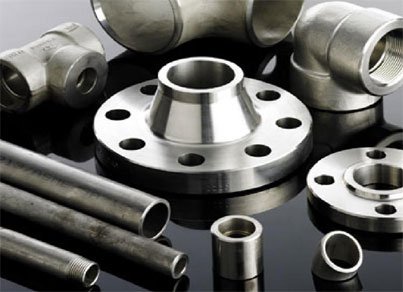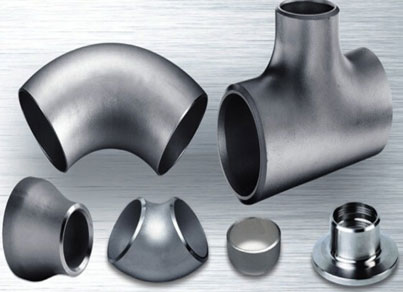Nickel
- Home
- Nickel
Nickel

Nickel is a versatile metal that is used in a wide range of applications, including chemical processing, electronics, aerospace, and marine engineering. There are several grades of nickel, each with unique properties that make them suitable for specific applications. Here is a brief description of nickel products with grades. Nickel 200/201: Nickel 200 and Nickel 201 are commercially pure nickel alloys that are highly resistant to corrosion in various environments.
They are ductile, weldable, and have good mechanical properties. Nickel 200 is often used in chemical processing, food processing, and electronics applications, while Nickel 201 is commonly used in electronic components, aerospace, and nuclear applications. Nickel products with these grades include pipes, tubes, sheets, plates, bars, fasteners, and fittings.
| Grade | UNS Number | Composition (%) | Density (g/cm³) | Melting Point (°C) | Tensile Strength (MPa) | Yield Strength (MPa) | Elongation (%) | Applications |
|---|---|---|---|---|---|---|---|---|
| Nickel 200 | N02200 | Ni ≥ 99.0 | 8.89 | 1435-1446 | 380-550 | 103-379 | 40-50 | Chemical processing, electronics, aerospace |
| Nickel 201 | N02201 | Ni ≥ 99.0, C ≤ 0.02 | 8.89 | 1435-1446 | 380-550 | 103-379 | 40-50 | Food processing, chemical shipping containers |
| Nickel 205 | N02205 | Ni ≥ 99.0, Fe ≤ 0.40, Cu ≤ 0.35 | 8.89 | 1435-1446 | 415 | 103 | 55 | Electronic components, batteries |
| Nickel 212 | N02212 | Ni ≥ 99.0, C ≤ 0.15, Fe ≤ 0.35 | 8.89 | 1435-1446 | 400-520 | 140-240 | 40-50 | Industrial applications, electrical resistance applications |
| Nickel 270 | N02270 | Ni ≥ 99.9, C ≤ 0.02, Fe ≤ 0.04 | 8.89 | 1435-1446 | 350-500 | 90-150 | 40-50 | Superconductors, electronic applications, vacuum tubes |

Nickel alloys are known for their excellent corrosion resistance due to their strong bond between the metals in the alloy. They also have great strength and toughness that makes them ideal for use in applications that require wear resistance or high temperatures. Common uses for nickel alloys include aerospace components, medical implants, marine equipment, valves and pumps, oil and gas production equipment, turbine engines, and nuclear power plant components.
| EN Number | Alloy Designation | Composition (%) | Density (g/cm³) | Melting Point (°C) | Tensile Strength (MPa) | Yield Strength (MPa) | Elongation (%) | Applications |
|---|---|---|---|---|---|---|---|---|
| EN 2.4060 | Nickel 99.2 | Ni ≥ 99.2 | 8.90 | 1450-1550 | 340-450 | 150-220 | 30-50 | Chemical processing, electronics, aerospace |
| EN 2.4066 | Nickel 99.9 | Ni ≥ 99.9 | 8.91 | 1450-1550 | 340-450 | 150-220 | 30-50 | High-purity applications, electroplating |
| EN 2.4070 | Nickel 200 | Ni ≥ 99.0 | 8.90 | 1450-1550 | 345-485 | 150-240 | 30-45 | Chemical processing, aerospace, electronics |
| EN 2.4066 | Nickel 201 | Ni ≥ 99.0, C ≤ 0.02 | 8.90 | 1450-1550 | 345-485 | 150-240 | 30-45 | High-temperature applications, chemical processing |
| EN 2.4816 | Inconel 600 | Ni 72.0-78.0, Cr 14.0-17.0, Fe ≤ 6.0 | 8.47 | 1390-1410 | 500-825 | 250-450 | 40-50 | High-temperature applications, chemical processing |
| EN 2.4856 | Inconel 625 | Ni 58.0-63.0, Cr 20.0-23.0, Mo 8.0-10.0, Nb 3.15-4.15 | 8.44 | 1290-1350 | 690-965 | 275-690 | 35-50 | Aerospace, chemical processing, marine environments |

A nickel alloy is composed of two or more metals, with one being nickel as the base metal. The other metals that often form part of an alloy may include iron (Fe), copper (Cu), manganese (Mn), chromium (Cr), molybdenum (Mo) titanium (Ti). Each different combination will result in different properties depending on the purpose it is intended to serve; this is why there are many types of nickel alloys available on the market today. For example, Hastelloy C276 contains an alloy made up mostly of nickel along with molybdenum, chromium, and tungsten, which makes it resistant to corrosion from many types of acids & chemicals.
A nickel alloy composition chart is a tool used to compare the chemical makeup of different types of nickel alloys. This chart provides information on the percentages of various elements that go into each alloy; this includes both metallic elements (such as nickel, cobalt, iron, etc.) as well as non-metallic elements (such as carbon, boron, sulfur, etc.). By comparing these percentages across different types of alloys, you can gain insight into how each one behaves differently in various conditions or applications.